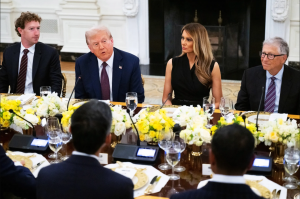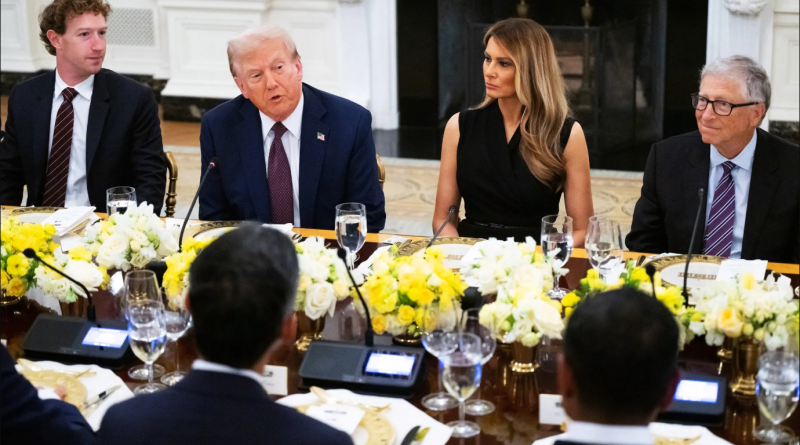Trump’s $600B Dinner: Should Big Tech and Politics Share the Table?
Technology Editor
Kevin Abbaszadeh
When former President Donald Trump sat down with the CEOs of America’s most powerful tech companies for what was dubbed the “$600 billion dinner,” the spotlight wasn’t only on the lavishness of the event. That $600 billion figure referred to the combined market value of the companies represented around the table. Apple, Google, Microsoft, Meta, and others were all present, each with their own vested interests. For many observers, the real question was not what was served, but what was being negotiated in the shadows of influence.
The intersection of technology and politics has always been delicate. On one hand, collaboration between government leaders and private companies can foster innovation, strengthen the economy, and ensure that regulations keep pace with rapidly evolving industries. Tech companies drive much of the U.S. economy: creating jobs, leading innovation in AI, and competing globally with rivals from China and Europe. It makes sense that a president, current or former, would want to engage with those holding the keys to this future.
On the other hand, the optics of such a dinner cannot be ignored. When politicians and CEOs gather behind closed doors, it raises concerns about transparency and fairness. Will policies be designed to serve the public interest, or to protect the profitability of a few companies? Already, Big Tech faces scrutiny for monopolistic practices, privacy concerns, and its role in shaping public discourse. Critics argue that private dinners blur the line between democratic accountability and corporate lobbying.

There is also a symbolic weight to these meetings. A dinner carrying the label of $600 billion sends a message that the wealth and influence concentrated in Silicon Valley are inseparable from the political stage. For business students and future leaders, this dynamic raises critical questions: should corporations be expected to advocate for their shareholders above all else, or do they hold a responsibility to contribute transparently to the democratic process? Likewise, should politicians prioritize access to industry leaders, or focus on ensuring that public policy remains free from outsized corporate influence?
Some argue that engagement is not inherently negative. If political leaders fail to bring industry experts into the conversation, regulations may fall short or lag behind reality. For example, without meaningful dialogue, the U.S. risks falling behind in AI and cybersecurity against global competitors. The challenge is finding the balance between collaboration and co-dependence.
Ultimately, the $600 billion dinner is more than a headline about Trump and tech CEOs. It highlights an ongoing tension in American business and politics: the need for dialogue between government and private industry, set against the dangers of entrenching power in too few hands. The real work for our generation, especially as future business leaders is to push for transparency, accountability, and ethical leadership in both boardrooms and government offices.
Should Big Tech and politics share the table? Perhaps. But the public deserves a seat, too.
Contact Kevin @ abbaszke@shu.edu

